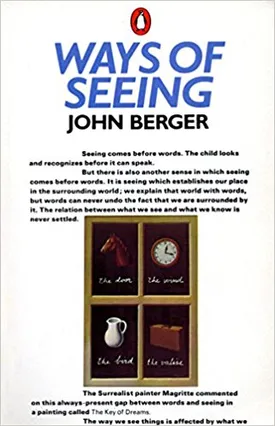John Berger
John Berger was one of the most influential literary minds of the twentieth century. His work was deeply rooted in the social and political experiences of his era, particularly in regards to issues related to global class struggles and disparities in the distribution of wealth and resources. Berger’s writing style was often candid and filled with subtle humor. He was a prolific author, with dozens of books, essays, and other works to his name.
Berger was born in London in 1926, and lived there his entire life. He studied at the Central School of Art and Design, and later at the prestigious Chelsea School of Art. His training as an art student and educator showed throughout his writing. In addition to examining socio-economic themes, he was interested in exploring aesthetics and the potential for using art as a form of political expression.
Berger began his literary career in the 1950s. His first major collection of essays was titled The Moment of Cubism and Other Essays, which discussed topics ranging from the rise of modern art during the Cubist era to the idea of the “absent spectator” in the audience of a Cubist painting. Other early works included A Fortunate Man and the collection A Seventh Man.
In 1972, Berger shone a spotlight onto art criticism with his book Ways of Seeing. The book sold millions of copies and is widely considered to be a foundational work of art criticism. The book examines how our culture views art, how we experience it, and how our perspectives on visual art are shaped by social and political conditions.
In the years that followed, Berger continued to explore the intersection between aesthetics, culture, and class. He wrote about the difficulties of coming of age in post-war Europe, the everyday challenges of living in isolated rural villages, and the ever-present antagonism between wealth and poverty. He also wrote extensively about the challenges of being a working class author in a world where commercial interests and the literary establishment often run afoul of each other.
In addition to books, Berger’s works included television documentaries, prints, photographs, and drawings. He also wrote a libretto for an opera, titled The Affair, which was performed in 1975.
Berger was a committed Marxist. He wrote unflinchingly and critically about the power struggle between the economic elites and the working class, calling into question the morals and motivations of those in the upper echelons of society.
Berger’s works have been translated into more than twenty-five languages. He was honored with the Booker Prize for his novel G in 1972, and in 2008 he became the first living artist to be honored with an exhibition at the Tate Gallery.
John Berger died in 2017 at the age of 90. His legacy will continue to touch the lives of readers and viewers around the world, helping to shape an understanding of art, culture, class, and our shared human experience.

